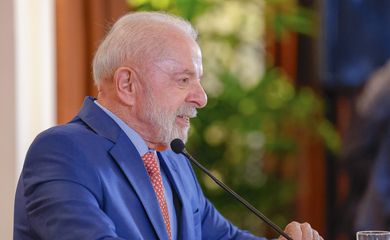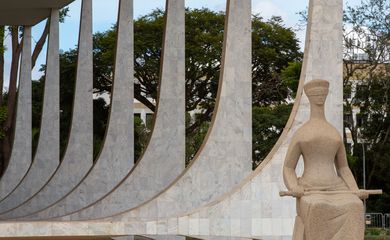1964 coup: maintenance of military tutelage allowed coup of January 8

In both 1964 and after the 2022 election, army officers rose up against the popular sovereignty of the vote. In both instances, they shared the belief that the military should determine the country’s course, disregarding the will of the people while operating under the tutelage of civil society.

According to social scientists consulted by Agência Brasil, this is one of the key similarities between the two events. Experts argue that both cases highlight the need for reforms in the Armed Forces.
One of the main differences between the two historical events is the lack of cohesion among business sectors in supporting the coup after the 2022 election, as well as the absence of international backing, particularly from the US government.
Historian Manuel Domingos Neto, a retired professor from the Federal University of Ceará (UFCE), noted that in both events, the military assumed the right to determine the nation’s fate.
“We have a corporate mentality that believes it’s the military, particularly the army, that should steer the country’s destiny. This mindset was the same in 1964 as it was in 2022—it persists. The military is trained with this notion,” said Neto, a researcher of military history in Brazil.
Carla Teixeira, a professor of Brazilian history at the Federal University of Uberlândia (UFU), emphasized the military commanders’ refusal to accept the authority of a civilian president elected by the population.
“In both 1964 and 2023, power groups sought to obstruct the will of the people. The current army commander, General Tomás Paiva, admitted that the election outcome was not what the military had hoped for. While not all officers supported the coup, it is clear that they did not accept Lula as president,” he explained.
For Carla Teixeira, who holds a PhD in history from the Federal University of Minas Gerais (UFMG), the unfavorable conditions prevented all officers from joining the coup. “Putting down the coup is easy; sustaining the government afterward is the problem. The military commanders realized that they lacked support both domestically and internationally,” she said.
The army’s leading role
Political scientist Rodrigo Lentz, an expert on the political thinking of the Brazilian military, emphasized the role of army officers as a key similarity between the two episodes.
“In both cases, the protagonists were military officers—mostly from the army—rather than privates. Another key similarity is that these officers rebelled against popular sovereignty, as expressed through elections, the legitimate means of forming a government,” he said.
Another significant similarity between the episodes was the strong support from sectors of the agribusiness community. “In 2022, the coup attempt received broad backing from agribusiness sectors. As later revealed in investigations, agribusiness figures financed the camps, as confirmed by Mauro Cid [Jair Bolsonaro’s former aide-de-camp],” said Professor Carla Teixeira.
Internal enemy and neoliberalism
Carla Teixeira added that, as in 1964, the group seeking to remain in power fabricated the notion of an internal enemy to justify its actions.
“In 1964, society was led to believe in a communist threat. Today, we see a similar pattern with concepts like cultural Marxism, gender ideology, and globalism, as well as the vilification of teachers, scientists, and artists—all of whom were branded as enemies by the Bolsonaro government,” she stated.
Another similarity is the push to establish neoliberal policies as state doctrine. “During the Castelo Branco government (1964-1967), several liberal measures were implemented that exacerbated social inequality, such as the abolition of labor rights, including job stability,” she said.
The historian noted that under the Bolsonaro government, neoliberal policies were embodied by then-Economy Minister Paulo Guedes and the Nation Project: Brazil in 2035, launched by the General Villas Bôas Institute—an organization named after one of the most esteemed figures in the Armed Forces.
“It’s a project that essentially enshrines neoliberalism as state policy, proposing tuition fees for public universities and even for Brazil’s public healthcare network, the SUS, among other measures. This highlights the military’s strong alignment with a neoliberal agenda,” she added.
Differences
Despite the significant similarities, there are notable differences between the 1964 coup and the events that culminated in the January 8, 2023, coup attempt. Specialist Rodrigo Lentz highlighted that, in 1964, the world was in the midst of the Cold War, with revolutionary movements erupting across Latin America.
“There was the Cuban Revolution in 1959, and the political landscape was marked by significant upheaval and instability. Election results were frequently contested, and military uprisings—always from the extreme right—were common. The context was very different: illiterates couldn’t vote, and Brazil was still in the process of urbanization,” noted Rodrigo Lentz.
In 2022, the context had changed: “We had experienced a period of political-electoral stability, with successive power alternations and recognition of election results. There was also a degree of party regularity. Today, we also have a more developed and strengthened democratic society, which contrasts with the pre-1964 era, when Brazil was still in its early stages of building a civil society,” he added.
“Bloodbath”
Historian Manuel Domingos Neto also believes that Brazilian society’s current democratic awareness is distinct from the pre-1964 period. “No matter how fragile Brazilian democratic consciousness may be, it exists—and it exists as a result of the resistance to the last dictatorship,” he said.
The expert noted that memories of the last dictatorship have been revived, which has helped deter the recent coup movement. He cited the success of the film I'm still here, which addresses the dictatorship, as an example.
“There is broad resistance from society. Brazilians who may not have experienced the dictatorship firsthand, on the other hand, understand what freedom means. They live in cities, unlike the past when Brazil was largely rural. That makes a difference. A bloodbath of immense scale would be required for them to maintain power,” analyzed Manuel Domingos Neto.
US support
Among the key differences between 1964 and the recent coup attempt, Professor Carla Teixeira highlighted the lack of cohesion among business sectors and the absence of external support.
“There was no alignment between the national and foreign bourgeoisie. In 1964, the entire bourgeoisie supported the coup—the agrarian elite, the urban bourgeoisie, the middle classes, and dominant groups, both domestic and foreign. It also had strong backing from the United States,” she said.
This time, she noted, the business sectors were divided. She pointed to the support for Lula from Simone Tebet and Geraldo Alckmin, both seen as representatives of segments of the business community.
“There was a group of the bourgeoisie there who voted for Bolsonaro, but who weren’t willing to carry out the coup. The political cost would have been too high,” added Teixeira
Another key factor was the stance of the United States. “A coup isn’t carried out without coordination with the bourgeoisie and foreign groups, and Bolsonaro did none of that. No one stages a coup in Brazil without US support,” she added.






